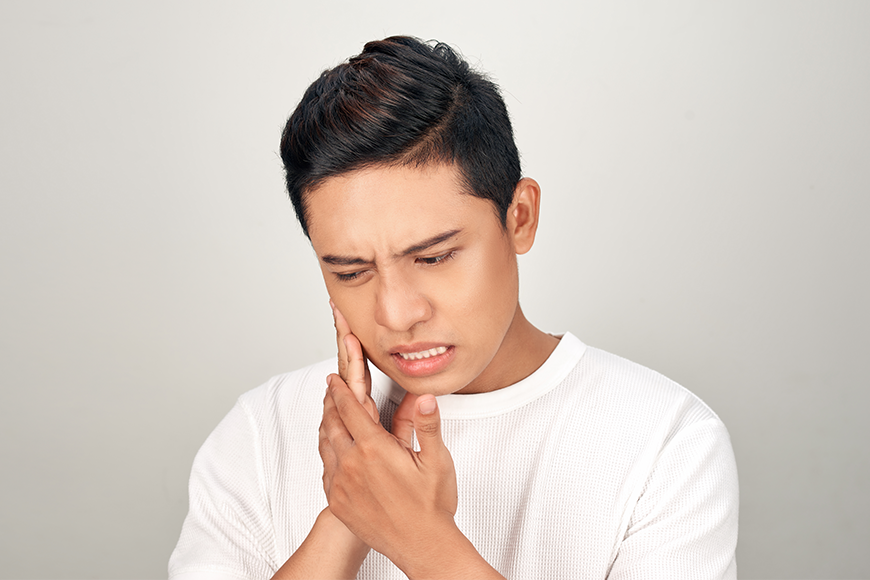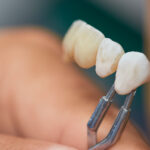Have you recently undergone a dental crown procedure and are now experiencing discomfort? Tooth crown pain can be a frustrating and sometimes alarming experience. While it’s normal to feel some sensitivity after the procedure, persistent or severe pain may indicate an underlying issue. In this comprehensive guide, we’ll delve into the common causes of tooth crown pain, explore effective relief strategies, and provide insights to help you make informed decisions about your dental health.
Understanding Tooth Crown Pain
A dental crown is a tooth-shaped cap that covers a damaged tooth to restore its function and appearance. While dental crowns are a common and effective dental procedure, they can sometimes lead to discomfort.
Common Causes of Tooth Crown Pain
- Initial Sensitivity: It’s normal to experience some sensitivity after a dental crown procedure. This is often due to the temporary irritation of the tooth and surrounding gum tissue. Over-the-counter pain relievers like ibuprofen or acetaminophen can help manage mild discomfort.
- Bite Problems: If your bite feels off or you experience pain when chewing, it could be a sign of a bite issue. A poorly fitted crown can interfere with your bite, leading to discomfort and even jaw pain. Consult your dentist to have your bite adjusted or the crown re-cemented.
- Infection: In some cases, bacteria can enter the gap between the crown and the tooth, causing an infection. Signs of infection include severe pain, swelling, and sensitivity to hot and cold temperatures. Seek immediate dental care if you suspect an infection. Your dentist may need to remove the crown, clean the infected area, and possibly prescribe antibiotics.
- Sinus Pressure: Sinus pressure can sometimes exacerbate tooth pain, especially in the upper teeth. This is because the roots of your upper teeth are close to your sinuses. Over-the-counter decongestants or saline nasal sprays can help relieve sinus pressure and reduce tooth pain.
Tips for Managing Tooth Crown Pain
- Practice Good Oral Hygiene: Brush your teeth twice a day with a soft-bristled toothbrush and floss daily to remove plaque and food particles.
- Avoid Hard Foods: Stay away from hard, sticky, or chewy foods that could damage your crown or irritate the surrounding tissues.
- Use a Mouthguard: If you grind your teeth at night, wearing a mouthguard can help protect your crown and reduce jaw pain.
- Stay Hydrated: Drinking plenty of water can help alleviate dry mouth, which can contribute to tooth sensitivity.
When to Seek Professional Help
Don’t ignore persistent or worsening tooth crown pain. While some initial discomfort is normal, certain signs indicate you should seek immediate dental attention:
- Severe or throbbing pain: This could signal an infection or nerve damage.
- Increased sensitivity to hot or cold: If sensitivity becomes more pronounced or lasts longer than a few days.
- Swelling or redness around the crown: This may be a sign of infection.
- Difficulty biting or chewing: A poorly fitting crown can cause discomfort and hinder your ability to eat.
- Visible cracks or chips in the crown: These can lead to further damage and increased pain
Madison Dentistry & Implant Center: Your Trusted Dental Partner
At Madison Dentistry & Implant Center, we are committed to providing exceptional dental care to our patients. Our experienced dentists can address a wide range of dental issues, including tooth crown pain. If you’re experiencing discomfort after a dental crown procedure, don’t hesitate to contact us for a consultation.
Conclusion
Tooth crown pain can be a frustrating experience, but understanding the common causes and implementing effective strategies can help alleviate discomfort and promote healing. By practicing good oral hygiene, avoiding irritants, and seeking professional help when needed, you can minimize pain and maintain a healthy smile. Remember, your oral health is essential to your overall well-being.




